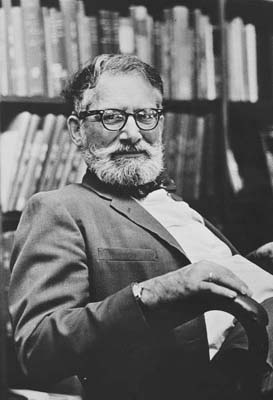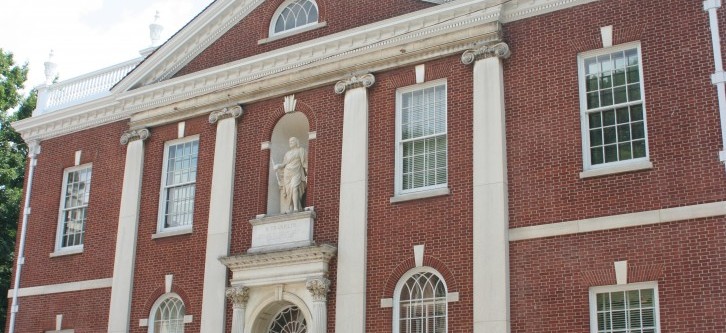The Library Company of Philadelphia, “America’s oldest cultural institution,” traces its history back to the good offices of Benjamin Franklin, who was instrumental in establishing the Library Company in 1731. The Library Company has a storied history of course—it served as the first Library to Congress, was for years the largest public library in the United States, and today houses a first-rate collection with a number of notable strengths.
It also seems to inspire a certain amount of devotion.
I recently paid a visit to the Library Company and as we waited in the lobby to meet with the Curator of Printed Books, Rachel D’Agostino, I noticed the attractive and--to my untrained eye--evidently funerary marble slab over next to the reception desk. Rachel later explained that this slab in fact marks the graves of library benefactors James Rush (1786-1869) and his wife Phoebe Ridgway Rush (1799-1837).
After his death in 1869, the childless and one might say eccentric James Rush gave his library and papers to the Library Company, and made a “generous bequest” that included provision for the purchase of land and the funds to construct a new library building—as well as restrictions that included such stipulations as
Let it not keep cushioned seats for time-wasting and lounging readers, nor place for every-day novels, mind-tainting reviews, controversial politics, scribblings of poetry and prose, biographies of unknown names, nor for those teachers of disjointed thinking, the daily newspapers.
And such of course was Rush’s ardor for the institution that he insisted that he and his wife be interred under the new library building. (And they were.)
After the library's move in the 1960s into the current Ridgway Library building, the remains of the Rushes were also--with due ceremony and the full consideration of the adjudication of the Orphan Court--removed into the new building, where they rest today.

Photo of Edwin Wolf II courtesy of the Library Company of Philadelphia
The devotion of the Rush family to the Library Company is not unique: the ashes of the Library Company’s stalwart Librarian Edwin Wolf 2d (1911-1991) are sealed in a wall of the library. (It is reported that contract negotiations with librarians today include provisions asking employees to seek interment outside the precincts of the library.)
More about the Library Company can be found here, while a more extensive account of the Rush bequest can be found here.
Are there other American libraries out there that house the remains of its friends or patrons? What other curious stipulations have libraries or museums had to fulfill in order to satisfy benefactors?



